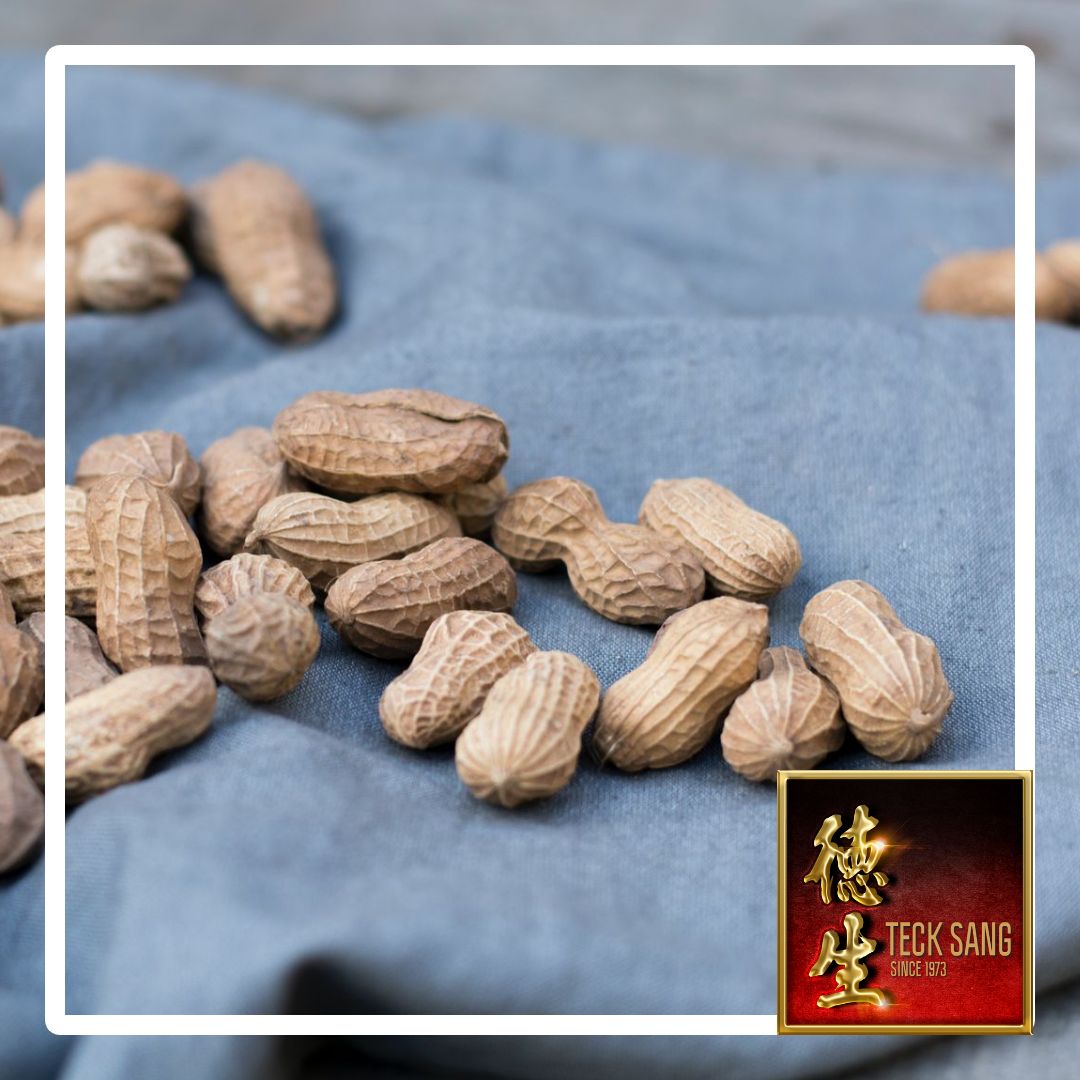What are the Nutrition and Health Benefits of Peanuts? Are there any negative side effects present in peanuts? - Lets get a nutritional breakdown.
Peanuts 101
Peanuts, a popular snack worldwide, offer a treasure trove of health benefits, alongside being a rich source of protein, dietary fiber, and essential minerals. According to the Food and Agriculture Organization of the United Nations (FAO), about 2.5 billion people worldwide consume peanuts. Peanut consumption numbers are expected to grow in the coming years, as peanuts are a nutritious and affordable food source. Peanuts' nutrition profile extends beyond the familiar crunch and satisfying taste, setting it up as a healthy addition to a balanced diet. Lets learn more about this ingredient.
Nutrition Facts and Health Benefits of Peanuts
The nutrition of peanuts is impressive, characterized by its high macronutrient content and a range of vitamins and minerals.
Fat in peanuts
Peanuts contain a high amount of fats, mostly unsaturated, beneficial for maintaining heart health and supporting overall well-being. A serving of peanuts provides healthy monounsaturated and polyunsaturated fats, necessary for body functions and maintaining healthy cholesterol levels.
Peanut Proteins
In terms of protein content, peanuts are a powerhouse, offering about 25 grams per 100-gram serving. Peanut proteins are a valuable source of plant-based protein, beneficial for muscle growth and repair.
Dietary Fiber
The dietary fiber in peanuts is considerable, promoting digestive health, and contributing to feelings of fullness, thereby aiding weight loss. A single ounce of peanuts contains about 2.4 grams of dietary fiber, essential for a healthy diet.
Vitamins and Minerals
Peanuts are rich in vitamin and mineral profile, including Vitamin E, B-complex vitamins, magnesium, and zinc. These nutrients support various body functions, ranging from immune health to energy production.
Health Benefits: Beneficial Side Effects of Eating Peanuts
The impressive nutrition profile of peanuts lends them numerous health benefits.
1. Supporting Heart Health
The monounsaturated and polyunsaturated fats in peanuts may help contribute to heart health; reducing bad cholesterol levels and preventing heart disease. Including peanuts or peanut products like peanut oil or peanut butter in your diet can support a healthy heart.
2. Maintaining a Healthy Weight
Peanuts, with their fiber and protein content, promote satiety and help maintain a healthy weight. Regularly consuming peanuts can aid weight loss by reducing overeating and unnecessary snacking.
3. Managing Blood Sugar Levels
Thanks to their low glycemic index, peanuts help in managing blood sugar levels. Their protein, fiber, and healthy fat content slow digestion, thus preventing blood sugar spikes.
Other well known health benefits of peanuts include:
- They are a good source of protein and fiber, which can help you feel full and satisfied after eating.
- They are a good source of vitamins and minerals, including vitamin E, magnesium, and phosphorus.
- They may help lower cholesterol levels and reduce the risk of heart disease.
- They may help improve blood sugar control in people with diabetes.
- They may help protect against cancer.
Nutritional Breakdown of Peanuts
What is the exact nutritional breakdown for a recommended serving of peanuts? This table below outlines the nutrients per serving of peanuts. A recommended serving size for unsalted roasted peanuts is 28 grams, or just one handful of peanuts.
| Nutrient | Amount | % Daily Value* |
|---|---|---|
| Calories | 167 | 8% |
| Protein | 6.9g | 14% |
| Carbohydrates | 6g | 2% |
| Fat | 14g | 18% |
| Saturated Fat | 2g | 10% |
| Cholesterol | 0mg | 0% |
| Sodium | 0mg | 0% |
| Fiber | 2.4g | 9% |
| Sugar | 1.4g | 3% |
*Percent Daily Values are based on a 2,000 calorie diet.
Risks and Considerations
While peanuts are healthy, there are some risks and considerations to bear in mind. Individuals with a peanut allergy should avoid peanuts and peanut products, as they can trigger severe allergic reactions.
Moreover, certain peanut products, like heavily salted or flavored peanuts, may contain added sugars and unhealthy fats, detracting from their nutritional value.
Which Types of Peanuts are Most Healthy?
Raw and dry-roasted peanuts are the most healthy types, as they contain the full spectrum of nutrients without any unhealthy additives. Also, natural peanut butter and cold-pressed peanut oil preserve the nutritional integrity of peanuts.
Frequently Asked Questions
What are the Possible Side Effects of eating too many peanuts?
Eating too many peanuts can lead to possible side effects, including weight gain due to high fat content, digestive issues from excess fiber, and potential allergic reactions.
How to know if someone has a peanut allergy?
If someone is allergic to peanuts, they might exhibit symptoms like skin rashes, digestive problems, and respiratory issues shortly after consuming peanuts or peanut butter. An allergic reaction to peanuts is an indication of the immune system overreacting to the properties of peanuts, perceiving them as harmful.
Often, the first exposure leads to a mild reaction, but subsequent exposures can lead to more severe symptoms. To confirm an allergy, medical testing is typically required.
Despite the excellent source of nutrients peanuts offer, those allergic should avoid all forms of peanuts including raw, boiled, or in the form of peanut butter, and learn to read food labels diligently to ensure no accidental intake. Understanding this allergy is crucial for overall health, as severe reactions can be life-threatening.
What are the nutritional health benefits of consuming peanuts?
Peanuts are an excellent source of plant-based protein, healthy fats, fiber, vitamins, and minerals. They are rich in monounsaturated and polyunsaturated fats, which help lower the risk of heart disease and type 2 diabetes. Additionally, consumption of peanuts in moderation can improve satiety, reduce inflammation, and support good gut health.
Is it necessary to consume raw peanuts only for the health benefits?
A: Raw peanuts are excellent for consumption, as they retain most of their natural nutrients. However, roasted peanuts can also be consumed, as they still provide the same nutritional benefits. It is important to avoid peanuts that have added salt, sugar, and other additives.
How much peanuts should be consumed in a day for overall health?
A: Peanuts are a good source of nutrition; however, they are also high in calories and fat. Consuming 1-2 ounces of peanuts every day can provide the necessary health benefits without adding too many calories to your diet.
What are the ways to add peanuts to your diet?
Peanuts can be added to your diet in several ways. You can consume them as whole nuts or in the form of peanut butter. They can also be added to smoothies, salads, and soups. Roasted peanuts can be sprinkled over yogurt, oatmeal, or a slice of bread.
Are there any side effects of consuming peanuts?
Peanuts are considered safe for most people. However, people who are allergic to peanuts can experience severe allergic reactions that can be life-threatening. Additionally, eating too many peanuts in a day can lead to weight gain and certain digestive problems, particularly if they are consumed in large quantities or with added sugar or salt.
What properties of peanuts make them a healthy food choice?
Peanuts are a rich source of monounsaturated and polyunsaturated fats, fiber, protein, vitamins, and minerals. These properties make peanuts an excellent food choice for improving overall health and reducing the risk of several chronic diseases.
Is it beneficial to boil peanuts before consuming them?
Boiling peanuts can make it easier to digest them, and it also helps to retain their natural nutrients. Boiled peanuts are a popular snack in some countries and can be consumed as a healthy snack option.
How does the intake of peanuts benefit your health and nutrition?
Studies have shown that eating peanuts can lower the risk of several chronic diseases, including heart disease, diabetes, and certain cancers. They promote good digestive health, support healthy weight management, and can improve overall nutrient intake.
What are the best ways to eat peanuts for the maximum nutritional benefits?
Raw or roasted peanuts without added sugar or salt are the best options for maximum nutritional benefits. Peanuts contain antioxidants, minerals like magnesium, potassium, and zinc, and healthy fats that help lower LDL or bad cholesterol and boost HDL or good cholesterol.
How does peanut butter help in maintaining good health?
Peanut butter may help maintain good health due to its high nutrient content, including protein, fiber, healthy fats, and essential vitamins and minerals. It is a good source of energy and can help improve satiety and manage weight. Peanut butter is best consumed in moderation as it can contain added salt, sugar, and other additives that can counteract the beneficial effects of peanuts.
Conclusion: Adding Peanuts to your diet is a good source of nutrition.
The nutritional benefits of peanuts extend from supporting heart health to aiding weight loss and blood sugar management. Whether enjoyed as a snack in the form of roasted peanuts, or used in cooking with peanut flour, peanut oil, or peanut butter, these small legumes provide big benefits. However, as with all foods, moderation is key to reaping these health benefits, alongside maintaining a varied and balanced diet.



